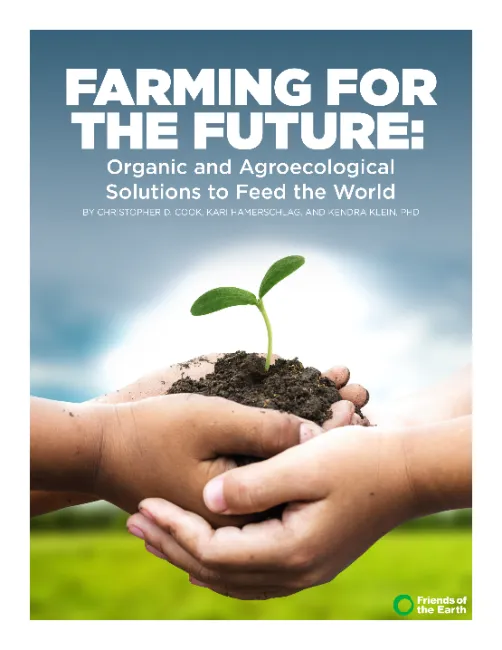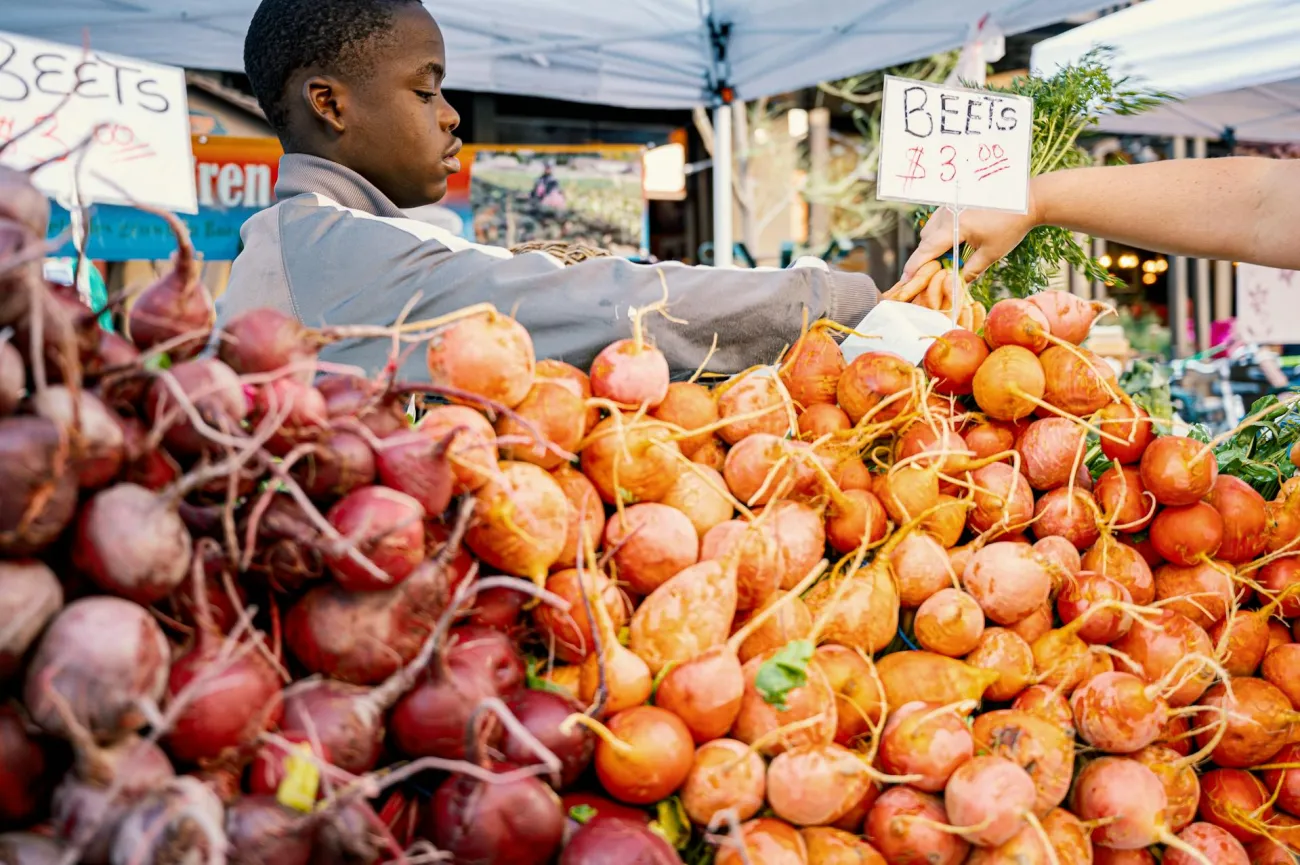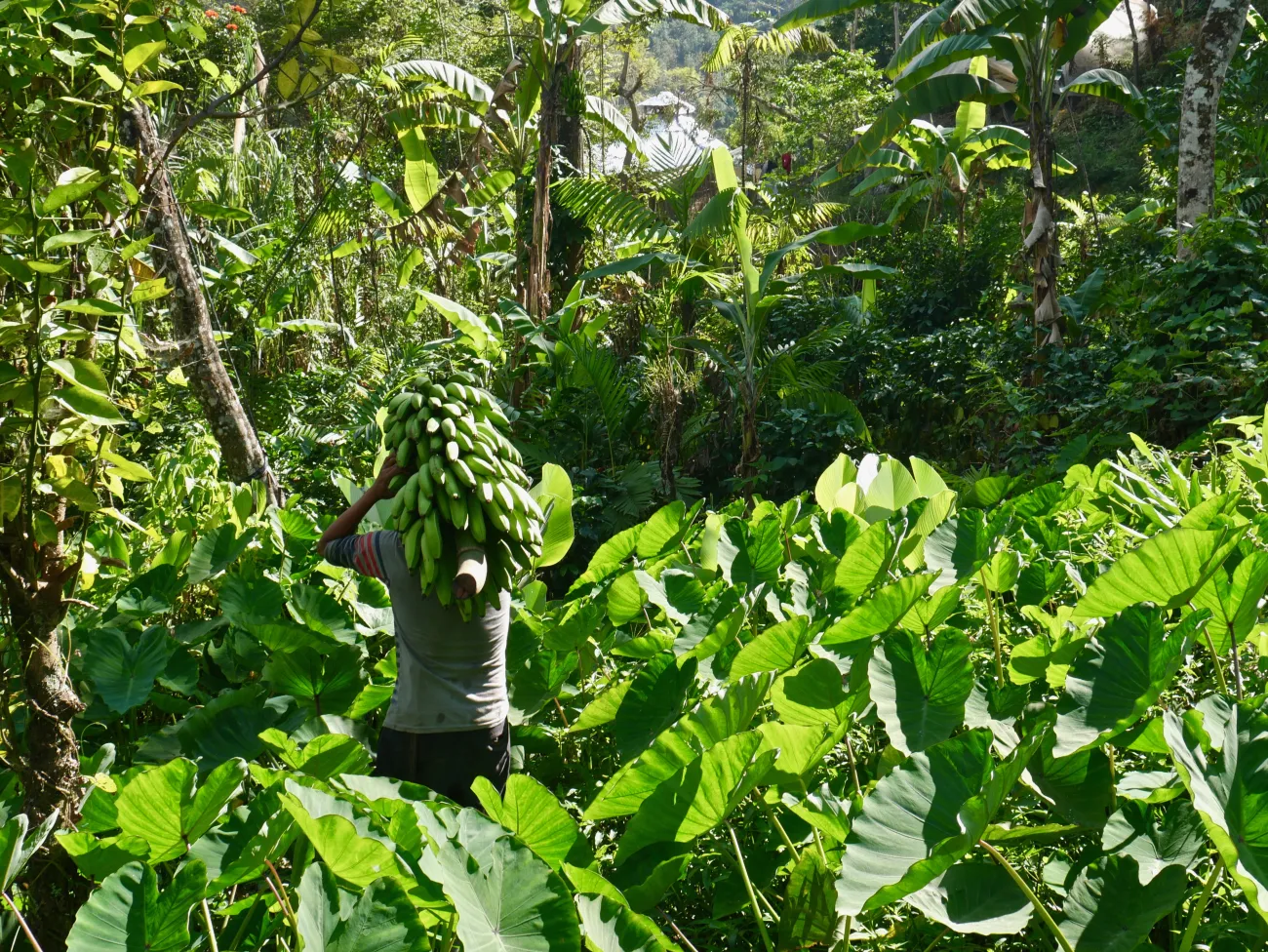This report by Friends of the Earth discusses how ecological resources essential for producing food can be protected and how we can feed a growing population by focusing on creating a more sustainable, democratic and fair food system for all.

It argues that there is enough evidence to show that hunger is not a consequence of insufficient food supply, but rather results from poverty, lack of democracy and unequal access to land, water and other resources. Instead of producing more food under unequal and ecologically destructive conditions, the solution to hunger lies in the creation of a sustainable, democratic and fair food system.
The report sets out to debunk three dominant myths about food, farming and hunger that keep society on the path of business as usual. The report broadly characterizes this as the path of “industrial agriculture” and introduces the principles of agroecology as a more sustainable and just foundation for our food future. While industrial agriculture is chemically-intensive and biologically-simplified, agroecology is described as a practice that works with nature, adapting to and regenerating nature’s resources. Agroecological farming methods include intercropping, cover cropping, crop rotation, conservation tillage, composting, managed livestock grazing and combined animal and plant production. These methods, the report argues, can foster biodiversity, natural soil fertility, water conservation and biological control of insects. The analysis of the report spans both developed and developing countries and also discusses policy priorities for advancing organic and agroecological farming.
Read more here. You can read the full report and the executive summary as well as an article by Friends of the earth on the Food Tank website here.
We also suggest that you look at our collected resources on the topic of Agroecology and organic farming in our research library. You can also see our interview with three experts on Agroecology here. The FCRN has also released a journal paper on the topic of Sustainable intensification in agriculture as well a report on the subject. Having published the report, we also invited some formal feedback which you can read here. Lastly you may also be interested in two papers on land-sharing versus land-sparing, here and here.




Comments (0)